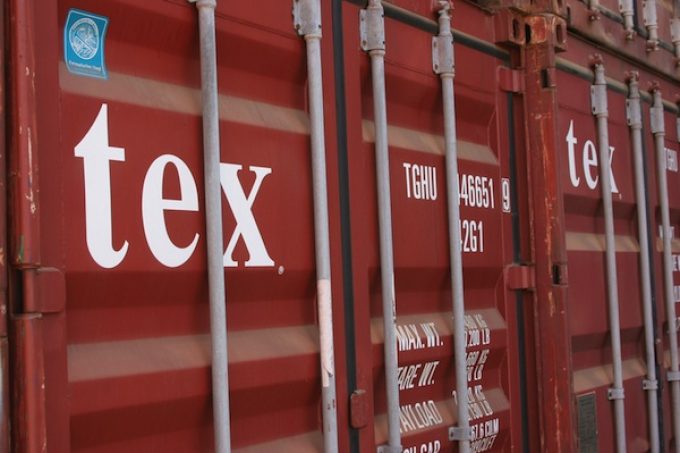Schenker, what Schenker? DSV boss talks up options – yes, Sir!
New corporate structure also serves ‘potential M&A that may come up’. May? Potential?

The last major container lessor with publicly traded shares is set to go private after Textainer agreed to a takeover offer from infrastructure fund Stonepeak.
Rumours have been swirling the industry that a takeover offer may be on its way since Textainer’s share price – traded on the New York and Johannesburg stock exchanges – hit historic highs in August, and this week Textainer investors were rewarded after Stonepeak put together a $7.4bn offer (enterprise value), equating to $50 per share that represents a 47% premium over last week’s closing price.
Under the terms of the deal, Textainer has a 30-day “go-shop” period that allows it to solicit alternative offers, set to expire on 22 November. Should none be forthcoming, the acquisition is expected to close in the first quarter of next year.
This would see Textainer following competitor container leasing firms Triton and CAI International retreat from public listings into the arms of infrastructure funds. Triton was bought by Brookfield for $13.3bn this year, while CAI was acquired by Mitsubishi HC Capital in 2021 for $2.9bn.
Indeed, Textainer’s share price rose 13% in the days following the news of Brookfield’s offer for Triton in early April, leading Loadstar Premium to (correctly) predict that Textainer would likely be the next deal on the block.
“This transaction has been made possible by our strong company foundation reaffirmed over the last several years, which allowed for both substantial capex growth and the strengthening of our business, further driven by our deep customer relationships,” said Textainer president and CEO Olivier Ghesquiere.
“By partnering with Stonepeak, we will gain access to investment capital and industry expertise, positioning us for continued growth in the years to come,” he added.
Mr Ghesquiere will continue as chief executive after the takeover and, with a severe downturn looming for Textainer’s customer base – the world’s leading shipping lines – the company’s short-term prospects are increasingly unpredictable.
While decreased demand for containers ought to lead to lower demand for leased boxes, lessor fortunes counter-cyclically surged in the aftermath of the 2008 financial crisis, as carriers took some of their own container fleets off their balance sheets and onto lessor balance sheets through a series of sale-and-leaseback deals.
James Wyper, senior MD at Stonepeak, added: “Textainer forms a critical link in global trade. The business is underpinned by high-quality assets and contracted cash flows that provide substantial downside protection and resilient through-cycle performance.”
Comment on this article